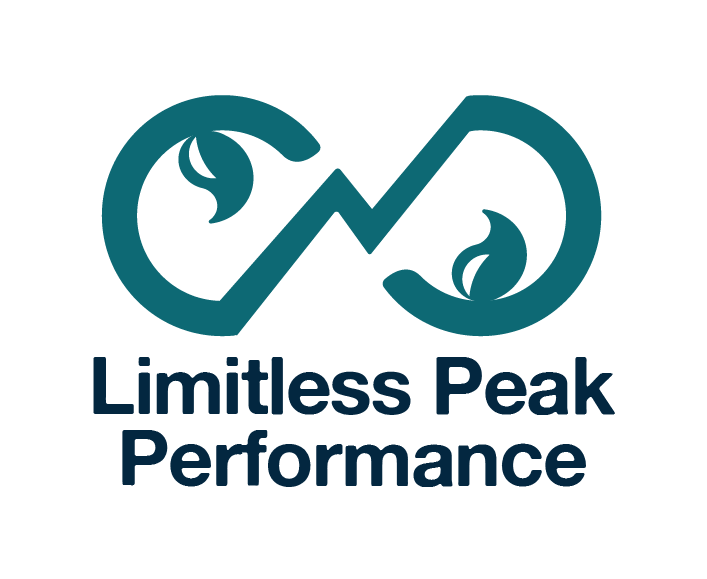Stop taking “Hopium” - Your stress management strategy needs an intervention
We need to talk about hopium.
You know what hopium is, even if you've never heard the term. It's a dangerous combination of hope and optimism that convinces you everything will somehow work out fine without you actually taking any action.
It's the voice in your head that says, " I can just power through this busy period, things will calm down next week/month." Or "I'm sure this overwhelming workload is just temporary." Or my personal favourite: "I'll deal with my stress when I have more time."
Hopium is the crack cocaine of stress management. It feels good in the moment, but it's slowly killing your ability to actually solve problems.
There’s a hopium epidemic
I see it everywhere. Leaders are drowning in workload but saying, "Things will settle down after this project/quarter/period." Parents are burnt out but convincing themselves, "it's just a phase." Professionals showing every sign of chronic stress but insisting, "I just need to get through this quarter."
Does any of that feel uncomfortably familiar?
According to MHFA England, 79% of employees are experiencing moderate-to-high stress levels, with 63% showing signs of burnout - up from 51% just two years ago. That's not a temporary blip. That's a systemic problem that requires systemic solutions.
Instead of diagnosing what's actually causing our stress, we're reaching for the hopium pipe. We're hoping that mindfulness app will work this time. We're hoping that weekend break will reset everything. We're hoping that if we just work harder, everything will somehow get easier.
What hopium actually looks like
Hopium isn't just blind optimism. It's sneaky. It disguises itself as positive thinking and resilience:
"I just need to get through this busy period" - without acknowledging that every period has been busy for the last two years.
"Things will calm down after [insert deadline/project/event]" - even though they never actually do.
"I'll start looking after myself when I have more time" - as if time is something that's going to magically appear.
"I'm fine, I can handle this" - while showing every physical and emotional sign of stress.
The problem with hopium is that it stops you from asking the important questions. Like:
“What specifically is creating this stress? Why is that stressing me out?”
“How is it showing up in my body and behaviour?”
“What do I actually need to address it?”
The stress scatter-gun approach
When we're high on hopium, we take a scatter-gun approach to stress management. We throw everything at the wall and hope something sticks.
We download meditation apps that we never use. We buy self-help books that we don't read. We promise ourselves we'll start exercising "when things calm down." We try breathing exercises for three days, then give up when we don't feel an immediate transformation.
It's like trying to treat a broken leg with paracetamol, a hot water bottle, and positive thinking. You might feel temporarily better, but you're not addressing the actual problem.
I’ll say it again - generic solutions don't work
Hopium pushers won't tell you that stress isn't one-size-fits-all. What stresses me out might energise you. What works for your colleague might make you feel worse.
According to Ciphr's research, people in the UK feel stressed an average of 10.3 days per month, but the triggers are completely different. 28% cite workload, 27% worry about world events, 25% stress about weight, and 23% about household chores. The same stressor affects different people in completely different ways.
Yet we keep prescribing the same generic solutions. "Just breathe deeply." "Try meditation." "Take a holiday." "Think positive thoughts." “Have you tried yoga?”
It's like prescribing the same medication for a headache, a broken bone, and a heart condition. Madness.
There is a hopium detox
If you're ready to quit hopium, you need to get honest about what's creating your stress. Not what you hope is creating it. What is actually creating it.
This means doing the work that hopium helps you avoid:
Stop hoping your stress will disappear and start identifying your specific triggers. Is it workload? Difficult relationships? Financial pressure? Get specific.
Stop hoping you'll magically feel better and start recognising how stress shows up for you. Do you get headaches? Become irritable? Stop sleeping? Pay attention to your early warning signs.
Stop hoping generic solutions will work and start determining what you actually need. Not what works for everyone else. What works for you.
Stop hoping things will change and start creating your personalised action plan. Specific, practical steps that address your actual stress.
The difference between hope and hopium
Don't get me wrong, hope is important. Hope says, "This situation can improve, and here's what I'm going to do about it." Hope is paired with action.
Hopium says "this situation will improve by itself if I just wait long enough." Hopium is paired with inaction.
Hope is planning. Hopium is hoping you won't need a plan.
Hope is diagnosing the problem. Hopium is hoping the problem will resolve itself.
Your hopium intervention
Are you ready to stage an intervention on yourself? Start by asking these questions:
What am I hoping will magically resolve itself?
What stress management techniques have I tried that haven't worked?
What am I avoiding addressing by staying hopeful?
What specific actions could I take instead of hoping?
Hopium isn’t your solution
Hopium feels safer than addressing your stress. It's easier to hope things will get better than to do the work of understanding what's actually creating your stress.
Your stress isn't going anywhere just because you hope it will. It's not going to magically transform because you downloaded another app or bought another book.
Put down the hopium pipe and pick up the diagnostic tools.
Your stress deserves better than hope. It deserves diagnosis, understanding, and a personalised plan that actually works.
Stop hoping. Start diagnosing.
If you’re ready to quit hopium and start addressing your stress properly, my "S.T.R.E.S.S.™" framework will help you identify your specific triggers, understand how stress shows up for you, and create a personalised plan that works – for YOU. No more throwing solutions at the wall and hoping something sticks. Do you want to know more? Drop me a message or book a free 30-minute consultation call.

